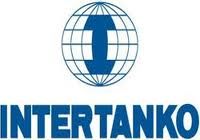
By using OCIMF/Intertanko’s Virtual Arrival scheme, tanker owners and operators could save up to 25% emissions per year, BP Shipping said.At a launch last week in Brussels,
attended by leading EC luminaries, Garry Hallett, OCIMF deputy director, said that 40 trial voyages using the scheme had been undertaken to date.
BP Shipping’s Lars Denker Nielsen said that the company had used Virtual Arrival around 50 times, each of which proved to be a success.
Virtual Arrival is a scheme to alleviate the time taken in waiting for a berth off a port in areas of known congestion. It relies on all stakeholders – owners/operators, charterers and ports -signing up to the idea.
For example, instead of a port or terminal requesting an estimated time of arrival (ETA) at a pilot station, the port or terminal should tell the vessel as to the time it is required, after establishing the time that the terminal will be ready to receive the vessel.
By using this method, the vessel can slow down en route, rather than making full speed for the discharge port, thus saving fuel and emissions.
OCIMF’s director David Cotterell admitted that this would involve agreements signed by all the stakeholders, probably in the form of newly inserted charterparty clauses, which are currently being worked on.
He also said that it would mean a fundamental change in commercial thinking, for example when it came to the stipulated speed and consumption on a C/P.
The organisers were at pains to point out that Virtual Arrival is not meant as a slow steaming tool alone and that the savings made would be shared among the stakeholders without any being out of pocket.
Although some owners and operators had adopted the scheme, Cotterell said; “We need more charterers and ports to sign up to the scheme.”
At its European launch, Siim Kallas, vice president EC and EC Commissioner for Transport said; “In light of the global sustainability race, the launching of Virtual Arrival in Brussels was undoubtedly one of the many significant steps in curbing maritime transport emissions.
"Virtual arrival proves the maritime sector is capable of delivering effective and global solutions to reduce emissions while maintaining technology leadership and economic sustainability," he said.
Source: Tanker Operator
We use cookies to improve your experience. By continuing to use our site, you accept our Cookies, Privacy Policy,Terms and Conditions. Close X